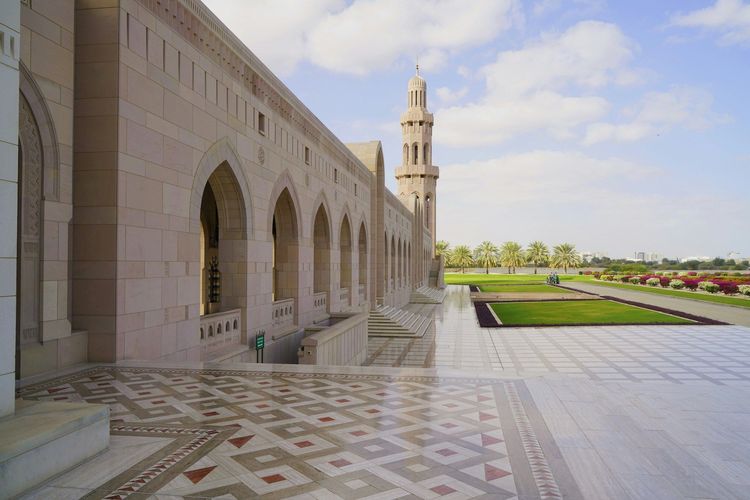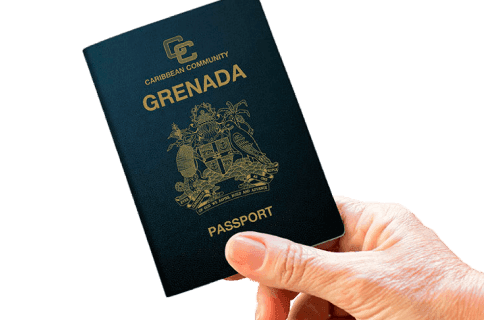Choosing a university abroad is more than just choosing an educational institution; it is choosing a culture, a language, and possibly a future in a new country. Turkey, a country where Eastern and Western traditions intertwine, offers students not only a quality education but also a unique cultural experience. In this article, we look at the ranking of universities in Turkey that attract students from all over the world with their academic programs and state-of-the-art research. In addition, we detail the process of obtaining a student residence permit (STP) in Turkey, which is a key aspect for international students seeking a fulfilling study and life in this amazing country.
Education System in Turkey
The Turkish higher education system is based on the three-tiered Bologna system introduced in 2001. It includes three main levels: bachelor's, master's and doctoral, which ensures a clear and consistent development of students' academic careers.
The academic year in Turkish universities is divided into two semesters, each lasting four months. Between semesters, there are two-week vacations for students to relax.
The start of the academic year in Turkey is usually in September, with exact dates approved annually by the Ministry of National Education, usually in the second half of the month. This structure allows students to prepare effectively for the new academic year and plan their studies in advance.
Curriculum Development
In Turkey, curriculum development is the responsibility of the Ministry of National Education. This organization is responsible for formulating educational standards, approving and updating programs, and monitoring the quality of education in the country. The Ministry strives to ensure that curricula meet modern requirements and the needs of the labor market, preparing students for effective professional activities.

Types of higher education institutions
There are about 220 institutes and academies, including public and private universities, in Turkey, which provide education to approximately 8 million students, including foreigners. The range of educational organizations in Turkey is quite diverse.
Turkish universities are often multidisciplinary, combining different types. One example is Istanbul Technical University, where students can be educated both in the main faculties of the university and in specialized institutes such as the Institute of Computer Science, the Institute of Aviation or the Conservatory of Music.
University Rankings in Turkey
Middle East Technical University (METU)
Middle East Technical University, located in Ankara, is known for its strong emphasis on engineering and natural sciences. This university attracts students with its innovative programs, modern infrastructure and active research activities, making it one of the leading technical universities in the region.
Boğaziçi University
Boğaziçi University in Istanbul has earned a reputation as one of the most prestigious institutions in Turkey due to its high educational standards, strong faculty, and picturesque location on the banks of the Bosphorus. It offers a wide range of programs in humanities and social sciences as well as science and technology.
Bilkent University
Bilkent University, the first private university in Turkey, founded in 1984, is renowned for its academic programs and cultural initiatives. The university offers extensive programs in arts, science, engineering and social sciences, attracting students from all over the world.
Hacettepe University
Hacettepe University in Ankara is known for its medical and engineering programs. Strong academic programs and participation in national and international research projects ensure the university's status as one of the key educational institutions in the country.

Koc University
Koç University in Istanbul is a relatively young but rapidly growing university that focuses on research in natural sciences, engineering, social sciences and medicine. This university has attracted attention for its innovative approach to education and strong ties to industry.
Sabancı University
Sabancı University in Istanbul is known for its unique program structure, offering students the opportunity to develop individualized study plans. The university focuses on research and offers programs in engineering, natural sciences and social sciences, making it a popular choice among motivated students.
Private vs. public educational institutions
In Turkey, the main difference between private and public institutions is the cost of tuition. Private institutions tend to be more expensive, but they offer a wider range of educational programs in English, which can be attractive to international students.
Where foreigners most often enroll
Turkey attracts students from 178 countries, and is particularly popular with students from Middle Eastern countries including Syria, Iraq, Iran and Yemen. Many students from Central Asian countries, including Kazakhstan, Turkmenistan, Uzbekistan and Tajikistan, also study in the country. Recently, there has been a noticeable increase in the number of students from Russia, Greece, Serbia and Ukraine, underscoring Turkey's growing attractiveness as an educational center in the region.
What exchange programs are available
Erasmus+
Erasmus+ is an internationally renowned non-profit program designed for student and faculty exchange between universities in the European Union as well as Iceland, Liechtenstein, Northern Macedonia and Norway. The program promotes professional development and cultural exchange, supporting educational and academic mobility.
Mevlana
Mevlana is an international exchange program that offers students and professors from Turkish universities the opportunity to participate in academic exchanges with universities around the world. The program has no geographical restrictions, making it a unique opportunity to exchange knowledge and experience internationally.
Farabi
The Farabi program organizes student and faculty exchanges between different higher education institutions within Turkey. It aims to strengthen academic ties between Turkish universities by facilitating the exchange of knowledge and experience within the country.
Benefits of getting an education in Turkey
Education in Turkey is renowned for its high quality and compliance with European standards. Diplomas of Turkish universities are recognized in all EU countries. One of the significant advantages is the opportunity to study in English, as well as in other languages such as German, for example, at the Turkish-German University in Istanbul. International students also have the opportunity to take the YÖS entrance exam with translated assignments in different languages, including English, Russian, French, German and Arabic.
In addition, Turkey provides excellent facilities for learning Turkish in specialized courses at universities, which is especially useful for those who plan to study in Turkish. Students can also participate in international exchange programs and internships, such as Erasmus+, which allows for international experience, including at universities in the United States.

Scholarships are available for talented students, which can cover up to 100% of tuition, dormitory accommodation and meals. A pleasant bonus is the low cost of living in Turkey: rent is much lower than in many European countries. For example, renting a one-room apartment in the center of Ankara will cost an average of $250 a month, which is much cheaper than in Athens, where the cost of similar housing is about $400.
How to go to university in Turkey
Admission to universities in Turkey begins with studying the requirements, which are available on the official websites of educational institutions. Foreign applicants can apply after completing the 11th grade. One of the key steps is to pass the entrance exam for foreigners and prove proficiency in Turkish or English at the B2 level, and C1 for some programs.
In addition to local exams such as the YÖS, some universities, such as Sabancı and Koç Universities, accept international tests such as the SAT, the standardized American test for admission to U.S. institutions of higher education.
Documents required for admission include:
- High school diploma with apostille;
- YÖS, SAT, or ACT entrance exam scores;
- Language certificates (TOEFL, TÖMER);
- Letter of motivation and references;
- Notarized copies of your passport;
- Two 3 × 4 cm photographs.
The certificate is certified with an apostille at the Ministry of Education of the country where the applicant received his/her education. Application deadlines are usually indicated on the official websites of universities. Most universities start accepting documents in April or May and finish by the first of August.
Applications and documents can be submitted through universities' online platforms. Some institutions, such as Hacettepe University, also require documents to be mailed by the deadline.
Obtaining a Student Residence Permit in Turkey
To study in Turkey, international students must first obtain a student visa and then apply for a student residence permit (STP) upon arrival in the country.
Student Visa: The application for a student visa is made at the Turkish Consulate of the country of residence. The basis for the visa is an official invitation from a Turkish university. In 2022, the cost of a student visa is approximately 45 dollars, however, this figure may vary and should be checked on the official consulate website.
Required documents for a student visa:
- A valid passport and photocopies of all its pages;
- A completed visa application form;
- Two 3 × 4 cm photos;
- Invitation from the university;
- Medical insurance;
- Confirmation of airline ticket booking;
- Bank statement confirming financial solvency;
- Visa fee payment receipt.
Student residence permit in Turkey (ikamet) is obtained within a month after arrival. To do this, the student must fill out a pre-registration form on the ikamet website, after which the staff of the local Migration Department appoints a date for the submission of documents.
Documents for obtaining a student residence permit:
- Original and photocopy of all pages of the foreign passport;
- A completed application for a residence permit;
- Four 3 × 4 cm photos;
- Bank account statement;
- Receipt of payment for the residence permit card;
- A valid health insurance policy;
- A document proving the availability of accommodation in Turkey, such as a rental agreement or a certificate from a hostel.
Student residence permit is usually issued for one year with the possibility of annual renewal until the end of studies. This card allows you to enter and leave Turkey without the need for an additional visa.










